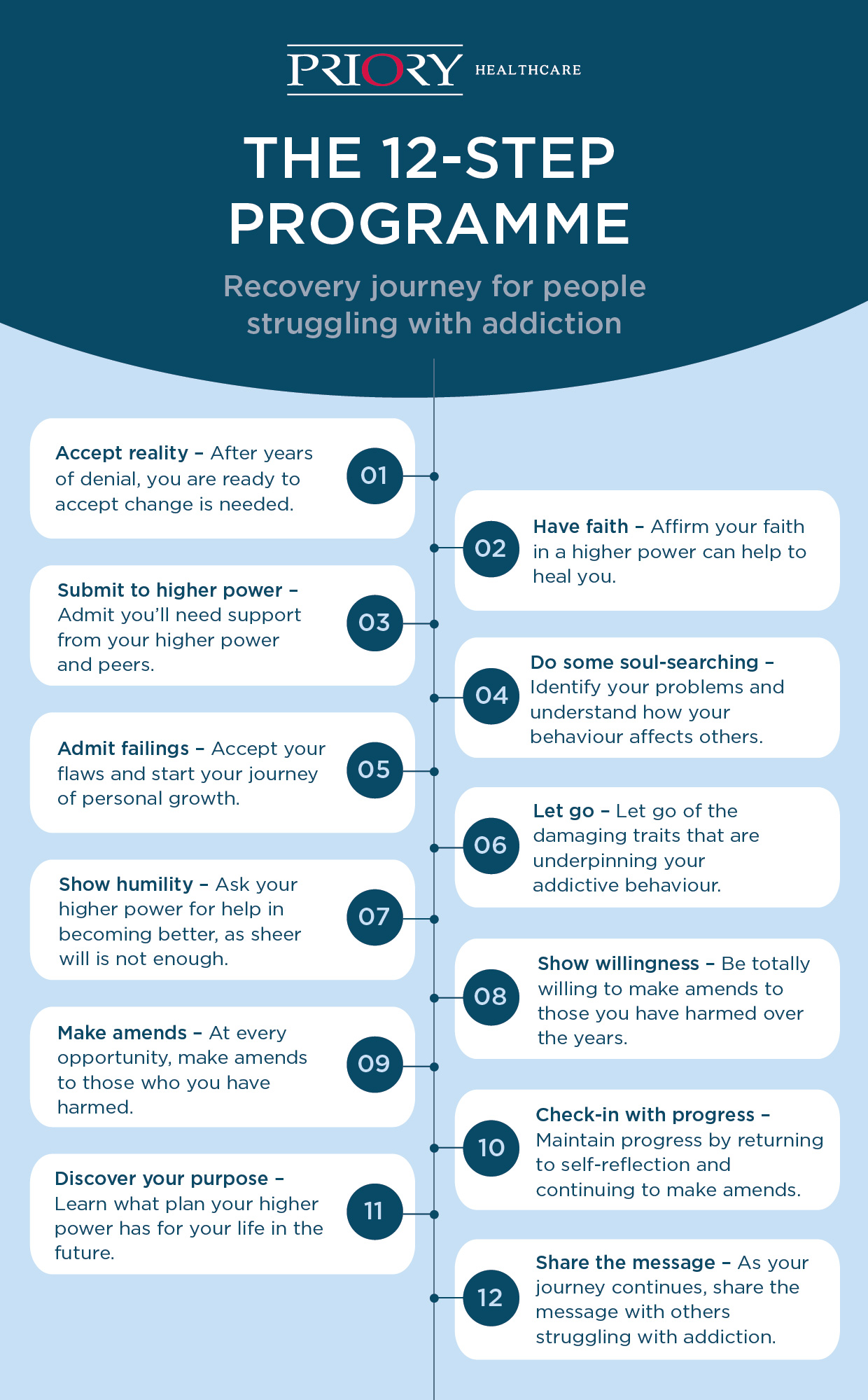12-step programme for addiction recovery
How the 12-step philosophy helps millions battling addiction, from initial treatment to securing long-term recovery.
The 12-step programme is one of the most recognised approaches to overcoming addiction. First introduced by Alcoholics Anonymous (AA) in the 1930s, it has since been adapted to support people facing a wide range of addictions and compulsive behaviours.
At Priory, we integrate the 12-step philosophy into our evidence-based treatment programmes. By combining structured therapy, medical care and peer support, we help you develop the tools, understanding and confidence needed for long-term recovery.
The 12-step programme offers a structured pathway to help you recover from addiction. It encourages honesty, accountability, and personal growth, all within a supportive community.
Its focus includes:
Although it began as a framework for alcohol addiction, the 12-step approach now supports people recovering from drug addiction, gambling, co-dependency, and other behavioural addictions.
The 12-step model helps you to:
Everyone’s experience of the 12-step journey is unique. You move through the steps at your own pace, focusing on progress rather than perfection.
While the language can vary slightly between fellowships, the 12 steps generally involve:
Many people continue to use these principles throughout their lives — not only to maintain sobriety, but also to live with greater purpose and self-awareness.

There are many fellowships based on the 12-step model, including:
At Priory, patients can take part in on-site 12-step groups as part of their treatment and are encouraged to attend community-based meetings to stay connected during and after treatment.
At Priory, we combine the 12-step approach with evidence-based therapies to provide well-rounded, personalised care. Depending on your needs, your treatment plan may include:
Your journey begins with a free addiction assessment, where you’ll meet with a specialist to explore your experiences, ask questions and find the right treatment pathway for you.
Discover some commonly asked questions about 12-step programmes.
There’s no set timeline. Some people complete the 12 steps in a few months, while others continue working on them over several years. The programme is designed to evolve with you as you progress.
Having a sponsor isn’t essential but can be very beneficial. Sponsors are experienced fellowship members who offer personal guidance and encouragement.
No. While the original version refers to God, the concept of a ‘higher power’ can be interpreted in any way that feels meaningful, whether that’s community, nature, or a sense of shared purpose.
The 12-step approach recognises that relapse can happen. The steps provide a compassionate framework for reflection and recommitment, helping you get back on track without judgement.
The 12-step programme has helped millions of people worldwide find freedom from addiction. When combined with Priory’s professional care and therapeutic support, it can give you the structure, community and confidence you need to rebuild your life.
Book your free, confidential addiction assessment today and find out whether a 12-step approach could be right for you.